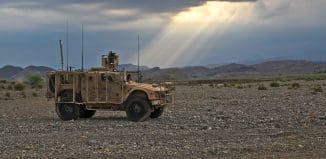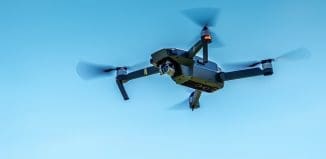Netherlands seeks Reaper unmanned aerial vehicles
This post is also available in:  עברית (Hebrew)
עברית (Hebrew)

The U.S. military has asked Congress to approve a possible sale of MQ-9 Reaper unmanned aerial vehicles and related equipment to the Netherlands.
The Reaper, formerly known as the Predator B, is a high-altitude long-endurance surveillance drone that can also carry bombs and missiles for strike missions. It is made by General Atomics Aeronautical Systems Inc.
“This potential sale will enhance the intelligence, surveillance, and reconnaissance capability of the Dutch military in support of national, NATO, UN-mandated, and other coalition operations,” the U.S. Defense Security Cooperation Agency (DSCA) said.
“The Netherlands requests this capability to provide for the defense of its deployed troops, regional security, and interoperability with the U.S. The proposed sale will improve the Netherland’s capability to meet current and future threats by providing improved ISR coverage that promotes increased battlefield situational awareness, anticipates enemy intent, augments combat search and rescue, and provides ground troop support.”
Register to iHLS Israel Homeland Security

The Netherlands is seeking four of the aircraft along with ground control stations; six Honeywell TPE331-10T turboprop engines, SATCOM Earth Terminal Sub-Systems; AN/DAS-1 Multi-Spectral Targeting Systems; General Atomics Lynx Synthetic Aperture Radar/Ground Moving Target Indicator Systems with maritime wide-area Search capability; and embedded GPS/INS guidance units.
Other items included in the $339 million deal would be an initial spares package and readiness spares package to support 3,400 flight hours for a three-year period, DSCA said.
The proposed deal under the U.S. Foreign Military Sales program has been approved by the State Department, the agency told Business News.
A security and military expert told i-HLS the unfolding deal is in line with the arms exports policy the US announced recently. Export regulations have eased in favor of US allies and partners, namely NATO members.
The US is pressuring anti-ISIS coalition members to step up their involvement in the bombings, as US forces are stretched to the limit. The Dutch drones’ participation is a long way off, but the deal seems to pave the way for that.





























